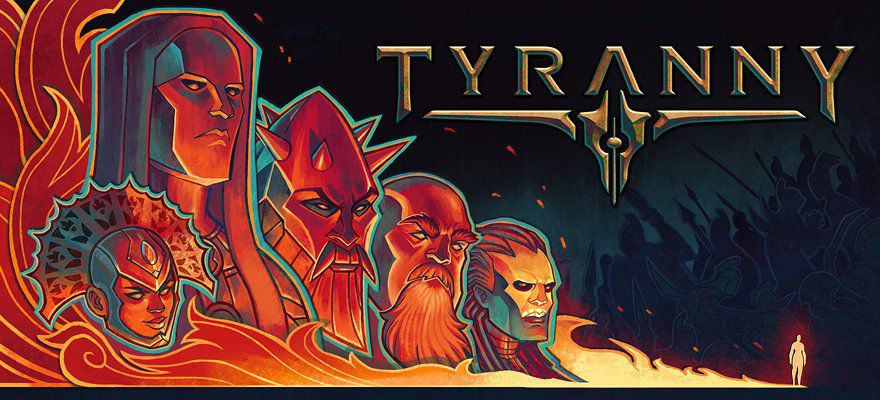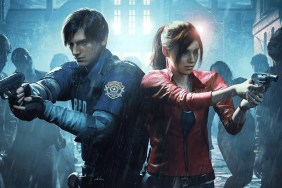Developer Obsidian reintroduced the complexity and difficulty of classic cRPGs with Pillars of Eternity, which was just as successful upon release as it was with its Kickstarter campaign. Now that they have seen success with a cRPG, the team was eager to create another, but this time, there is no good vs. evil. In Tyranny, there is only the means to survive by being manipulative, strong, and staying somewhere between neutral neutral and chaotic evil.
Not long after presenting how the game will play at E3, the writing team began to publish short stories on the Tyranny blog. Their idea was to present a bit of what we can expect with the various factions in the game as well as just how dark the environment will be. I had an opportunity to talk with the Narrative Design Team about these short stories and about writing evil for Tyranny.
GameRevolution: What inspired the dark setting for Tyranny?
Matt Maclean, Lead Narrative Designer: The dark setting was one of the original pillars of the game’s design. ‘What if evil won?’ was the question asked in the earliest pitch documents. So ‘evil setting’ was an owner mandate from day one and as far as design constraints go, that’s a fun burden to have around your neck.
Our inspirations included The Black Company, the Fallout series of games (Obsidian created Fallout: New Vegas), and the ‘What if evil won?’ question was unavoidably read as ‘What if Sauron won?’ so there’s always a little Lord of the Rings in any modern fantasy, though I’m proud to say we don’t have elves or dwarves or a lovable midget race of any kind.
For my own interpretation of the question ‘What if evil won?’, I’ve always assumed the answer would be ‘sounds like real life.’ Evil wins when people learn (or are shaped by ignorance) to accept it as required and normal. So most of my own inspiration for Tyranny has come from real life. I’ve never read a book or seen a movie with a fictional villain as fascinating as Alan Dulles, Qin Shi Huang, or Kim Jong-Il.
GR: Did you take any ideas from books, games, or movies for this environment of evil winning? Which and how?
MacLean: The Black Company was very influential, with is an excellent show of a world wherein the cast of characters know the stories and myths of the magical bigwigs but are only semi-aware of how it all actually works. Black Company also had a great sense of soldiers-as-people and it didn’t fall into the brash-hero/peasant-savior nonsense that most fantasy novels can’t help but repeat to death.
Myth: The Fallen Lords was also a big influence, with its grim take on the true cost of being a hero. Myth was also inspired by Black Company, and like Myth, Tyranny features magical sociopaths with personality-driven powers set alongside grim, desperate regular folk trying their best not to die.
A world wherein there’s one big evil dude on top really only works when it’s sold with great big lies that get the average person invested in the evil (or just dependent upon it), instead of willing to resist it. And for evil to win long term, it also needs to be immune to self-implosion (since we’ve all read enough fantasy literature to know that evil defectors are involved in 9 out of 10 evil regicides). So with that in mind, I’ve found most of my inspiration comes from non-fiction: fascism, American exceptionalism, drug cartels, capitalist corporations, and militaries through the ages have all provided a great deal of inspiration as to how evil wins.
Megan Starks, Narrative Designer: I really like the dark humor in many of the Orcs' lines in the Lord of the Rings movies. I also like to think a bit about some different bad guy groups like the Governor or the people running Terminus in The Walking Dead, the raiders in Fallout 3, the reavers in Firefly, US prohibition-era gangsters, or hired gun type characters (whether it be a spy like Brock Samson from the Venture Bros or a sellsword like Bronn from Game of Thrones).
For examples of good people, or just normal people—both good and not-so-good, caught in situations they don't have much control over (you do what you have to protect your country and/or to survive)—I looked at various war movies for inspiration. If these influences seem like they're all over the place, it's because they definitely are. It's good to consume a lot of different types of narratives and character portrayals and blend them together new and interesting ways, in my opinion.
Paul Kirsch, Narrative Designer: I take some inspiration from Michael Moorcock’s Elric of Melnibone series—not as much from the sword & sorcery angle as the impression that the protagonist comes from a context so inherently dark that cruelty and atrocity are the benchmarks for normalcy. If doing something unspeakably awful is presented in a casual tone, chances are fair I’m tipping my hat to Elric.
Another of our big themes is power and how it gets wielded. We take a lot of inspiration from Soylent Green—specifically the scene where Charleton Heston is supposed to be investigating a murder and he spends most of the time looting the victim’s upper-class apartment. He’s operating within the rights that his station affords him, he’s being a huge dick about it, but he doesn’t spend a moment questioning the ethics behind this behavior. That’s a good roadmap for understanding how the Fatebinder expresses their authority.
Robert Land, Narrative Designer: I played a lot of D&D growing up and was the DM most of the time so I spent days designing my own worlds and filling them with both good and evil, so I usually tap into those stories if I want something particularly evil to write about. But I love sci-fi, horror, and fantasy, so there's a gigantic mess of twisted ideas roiling around in my brain.
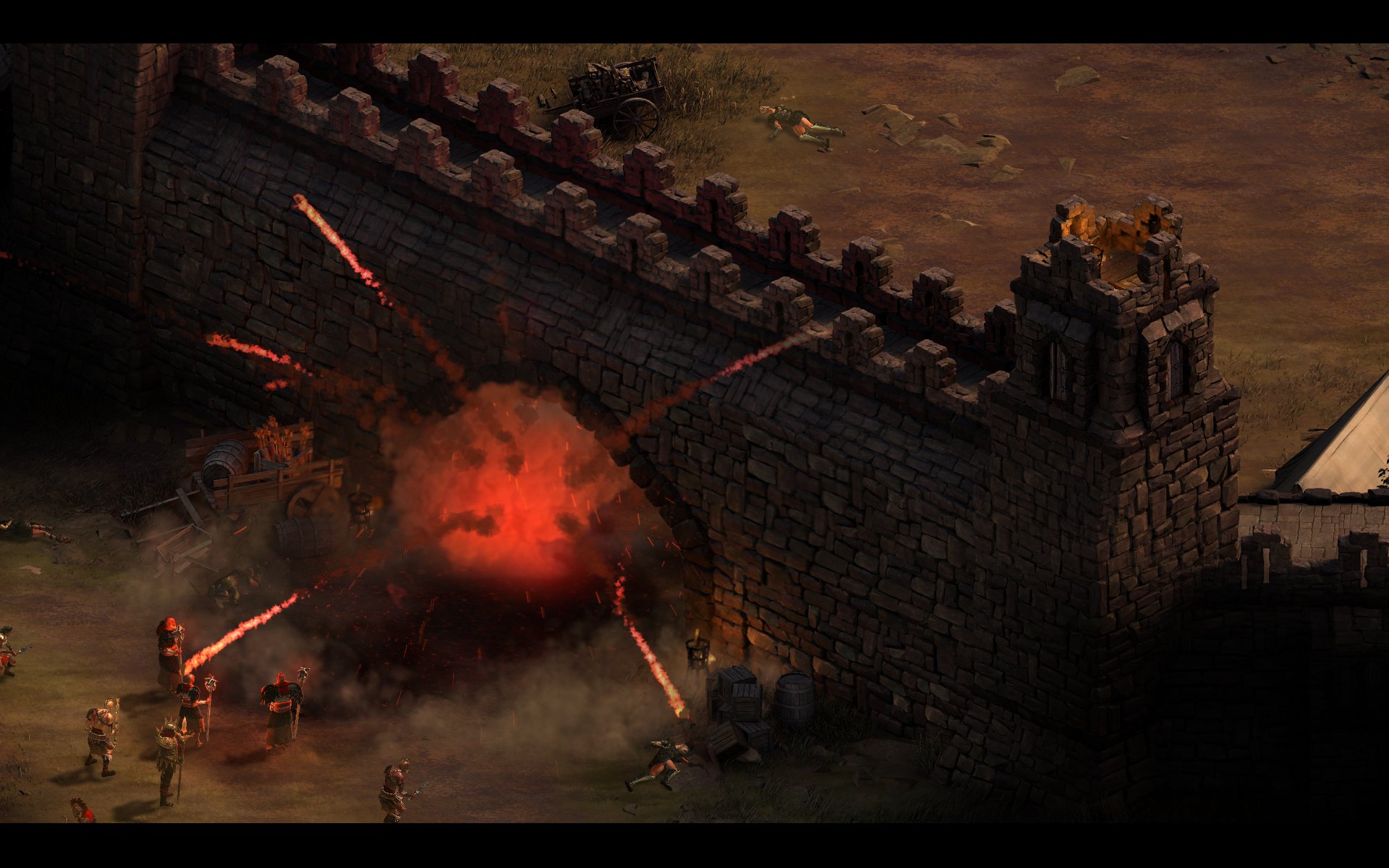
GR: What made you decide to write these short stories for the Tyranny blog?
Kirsch: We wanted to present some emotional/intellectual context for the world of Tyranny, to offer a sense of familiarity when approaching the game as a newcomer. The protagonist of Tyranny didn’t just stumble out of Candlekeep, a blank slate afraid and alone. He or she is a firmly established name in a hierarchy of influential people. They know their way around the world and its many laws, they know how to navigate the power available to them, and this gives them something of an advantage over the comparatively less-experienced player. The stories help to even the playing field as it were and set the expectations for whatever lies ahead.
Land: Sirin quickly became one of my favorite characters I ever had the chance to develop and as her backstory kept becoming more and more tragic, I wanted the opportunity to tell one of her stories in more detail. She is probably the most powerful Archon on Terratus, and the story gives you a little taste of just how powerful she really is.
GR: What do you enjoy most about writing them?
Kirsch: I’ve been working on the game long enough that writing these stories feels like fan fiction. The themes and types of experiences Terratus has to offer are very familiar. That’s quite different from sitting down in front of a blank piece of paper and thinking to myself: “I wonder if this world has clocks. Would they have a bell tower, a sundial, a cow that wanders by every fifteen minutes? Damn, what do they feed the cow? Where does their water come from? How expensive are candles? How do airships work?”
Land: When you develop a character and really get to know her, you want to tell as much of her story as you can. I loved giving everyone a little more insight into why Sirin is so messed-up.
GR: Do you have a favorite faction to write about/for?
MacLean: My favorite faction to write was the Scarlet Chorus, mostly because it’s a faction of grumpy jerks and I’m a grumpy jerk, so it’s a perfect fit. More a lawless mob than a ‘proper’ army, the Scarlet Chorus is made up of folks forced to join or die, with the masses kept in check by aggressive gang leaders who rule as despots until they are challenged and dethroned. The folks in this bloody motley have to be rough, jaded, and darkly optimistic to make it through the day, so they’re all tinged with sass and deceit, and that’s far more fun than writing honest villagers.
Starks: Within each faction, I've grown really fond of several specific characters. As a whole though, I like writing for the Scarlet Chorus. Their unruly attitudes and lack of hygiene has been endlessly fun to imagine and write.
Kirsch: The Disfavored and the Scarlet Chorus are fun for different reasons. As the most militaristic and viciously patriotic, it can be enjoyable to test the Disfavored’s limitations—what a soldier will do for their unit, how they balance their emotions and needs against the needs of the legion, and how their personality measures up to the expectations of the legion.
When it comes to the Scarlet Chorus, this is more fertile ground for creative exploration. No form of psychological manipulation, physical torture, or all-around weirdness is off the table when the Scarlet Chorus is concerned. We’re talking a Fury Road magnitude of diversity and strangeness. Since every gang has its own rules and twisted leadership structure, there isn’t what you’d call uniformity in any gang of Chorus rats.
To answer the question… yes. But I suppose it depends on what sort of day I’m having.
Land: Specific faction? No. But I do love writing evil options. When I play games, I always decide, "I'm going to try the evil path," but when the first choice presents itself, I can't bring myself to do it. But coming up with twisted things for the player to choose? I love doing that!
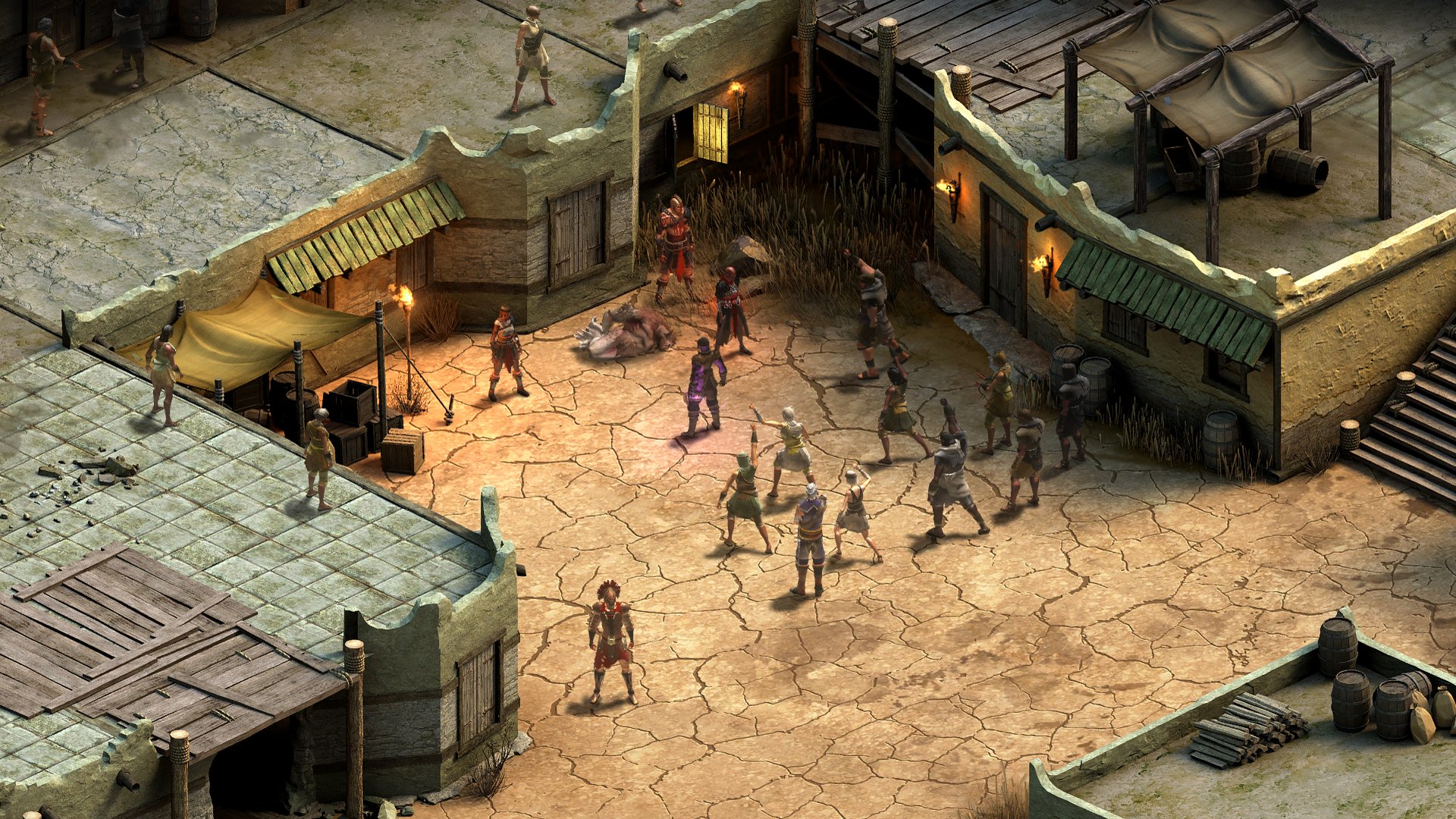
GR: Are there any plans for extended lore? I need more of those short stories, especially about Crow Trap and the Trap Gang.
Kirsch: Thanks! A friend of mine read “Under New Management” and described the Trap Gang as human jackals. I was pleased that it read that way.
MacLean: Hopefully, you’ll find the game to be the extended lore. Some of the folks in the short stories will have cameo appearances in the game and you could spend a good deal of time reading the game’s encyclopedia if your life depended on a serious lore fix.
GR: The short stories suggest there's more to these factions than just burning and pillaging. Will we learn their backstories in the game? And is this indicative of how the narrative and role-playing will run in Tyranny?
Kirsch: If you want to understand the armies of Kyros, there’s no better entry point than the soldiers and Archons. Talk to everyone, take the time to ask questions and figure out who these people are. Even the Chorus understand that their way of life is unsustainable, and that someday the survivors will have to pick up pitchforks and boat oars for their intended purposes. If you’ve explored every dialogue option, we’ll know that we’ve done our job.
GR: Will the stories also touch upon the choices available to players regarding the type of tyrant they can be?
MacLean: We don’t plan to spoil any of the quests in the short stories, but hopefully the short stories give you a better sense of the world, its characters, and its oddities.
Starks: A lot of our stories focus on different characters and groups within the world of Tyranny. As a writer, my hope is that in giving a glimpse into these characters, we're also providing readers with insight into how different people handle the amount of power they have—or don't have—in their daily lives on Terratus.
Everyone has their own motivations which, in turn, informs their actions in the face of both conflict and opportunity. Some people are only out for themselves, while others might operate on moral ideals or have a person they want to protect or avenge. Players, too, I think will choose motivations for their character which will then influence the way they progress through their path to power in the Tiers.
GR: Will the gamut of role-playing options run from killing everything "just because" to strategically ruling the empire with an iron fist?
MacLean: This isn’t a game of running an empire, so it’s safer to say the choices are all about surviving in a world where being a decent person rarely gets you very far. So your options run from deceptive, to abusive, to professional, to charitable, to terrifying, to passively indifferent. Generally speaking, you can attempt to inspire love and loyalty in others, but often that means doing sick and twisted things to earn the affection of evil people. Or if you get sick of people taking advantage of you, you can inspire fear and hostility in others.
Kirsch: The Fatebinder is an extension of Kyros’ law, so their role necessarily covers a lot of ground—anything from the regulation of merchant selling rights to the defense of legal precedent. If “killing everything just because” achieves the goal of bringing Kyros’ Peace to the new frontier, the Overlord is not above offering it as an available solution.
GR: Is there an option to play "nicely"? One who tries to rule with love instead of fear?
MacLean: Rule with love instead of fear? So you mean emotional blackmail and guilt? You can play as a ‘nice’ character within reason, the game doesn’t really have a ‘save the orphanage’ side quest, so being good in Tyranny often means less glamorous acts of goodness, like showing restraint and not answering violence with more violence, or lying to save lives.
Starks: You can certainly try. 😉 Actually, I think there will be plenty of nice tyrants taking over the Tiers. My husband plays one for example (while I play the more evil route). The game forces you to make some tough decisions, but ultimately the decision is still yours. What are you willing or not willing to do for the greater good? What about for your own self-interest or even, maybe, for your own survival?
Kirsch: Just because the Fatebinder comes from a bad place doesn’t make them Alex from A Clockwork Orange. The difference here is that “nice” doesn’t necessarily correspond to “right” in the same way that “evil” doesn’t correspond to “wrong.” Being wicked to someone might just get you the better result because that’s what this war demands.
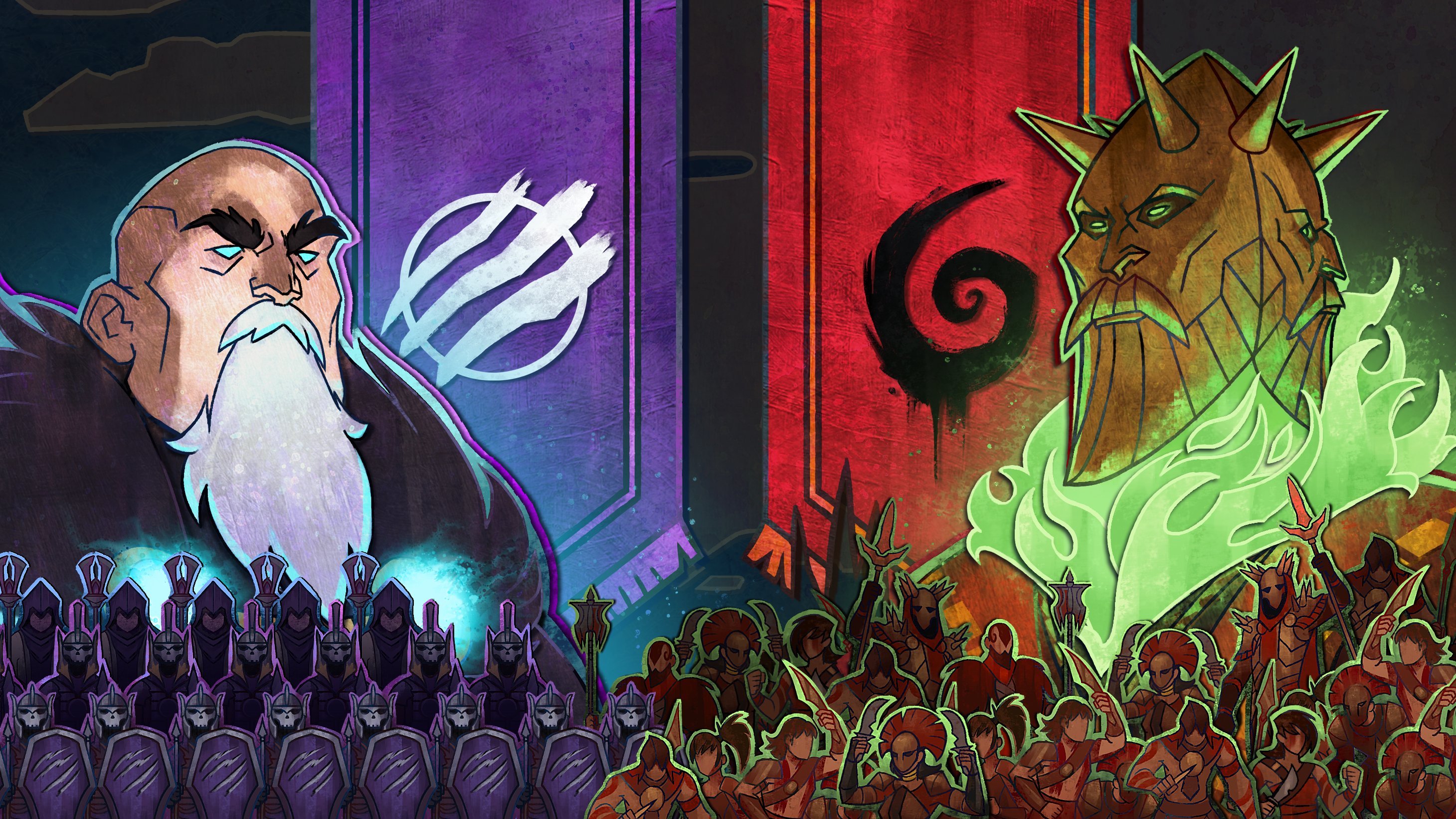
GR: What kind of tyrant would you be?
MacLean: I would tax/imprison/kill people for having children, using fossil fuels, and wasting resources. And I won’t force people to eat other humans, but it will be subsidized until we learn to live within the limits of the planet. And I'd establish a court wherein you can prove your innocence by fighting a polar bear.
Starks: When I play video games, I like to stick to a lightly principled "do good things to good people and do bad things to bad people," but I also find chaos and the unexpected to be really fun and interesting. Surprising characters is particularly enjoyable. So I would definitely play a chaotic neutral Fatebinder. I'm always out for myself above all else—if it serves my own interests, I'll go for it regardless of the consequences to other characters.
Kirsch: I would be the innocuous-looking page who stands beside the throne holding a candelabrum or a very long scroll. You would never imagine that I was the head of the empire, or that the person sitting the throne is effectively a scarecrow meant to deflect assassination attempts away from me.
Land: I'd like to think I'd be the tyrant with the heart of gold, but who knows what would happen if I were presented with real power. But if my gameplay experience is any indication, the first time I had a chance to be evil, I'd take the good choice instead.
GR: Thank you all so much for your time. I know I'm even more excited about Tyranny and the opportunity to play a game where being good gets you nowhere.
(Tyranny is set to release on PC later in 2016.)
